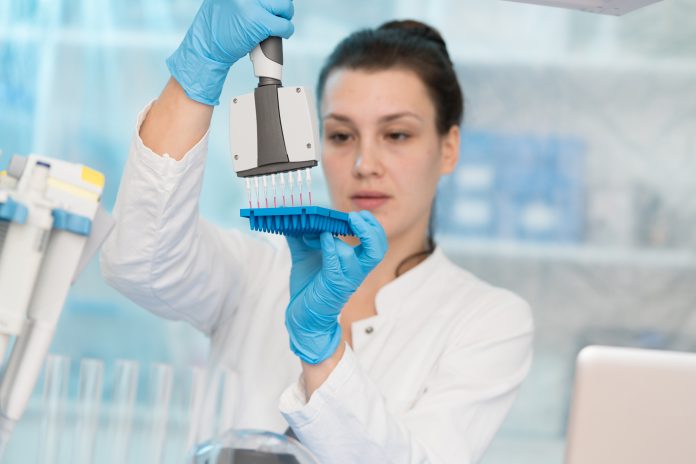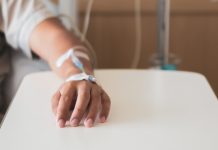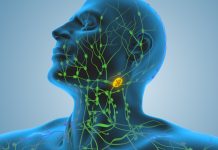Ahmed Samir Abdelhafiz and Zisis Kozlakidis both shed light on new technologies for knowledge translation in cancer
Non-communicable diseases, such as cancer, are among the leading causes of death worldwide today. Due to major changes in life expectancy and world population growth, cancers are expected to increase significantly over the next years. In an effort to better prevent and respond to this rise in cases, innovations have emerged in screening and early detection; new treatment options; as well as strategies to improve quality of life for patients and cancer survivors. These new technologies have the potential to decrease incidence, reduce mortality and morbidity from cancer. However, optimising them requires their appropriate application and incorporation in the guidelines, handling and their adaptation within the context that they need to operate routinely, a goal that is often difficult to achieve.1
This fast-paced technological environment presents a real challenge, as translating this knowledge into practising healthcare or public health interventions is becoming progressively more complex. Here we present some of the new technologies and approaches that are used for knowledge translation in cancer; as seen from three perspectives, the professional, organisational and wider, social one.
Professional perspective
One such example of new technologies introduced within cancer care relate to clinical decision support systems. These could be in the form of mobile applications, alerts, reminders, order sets, drug-dose calculations that automatically inform or remind the clinician of a specific action, and/or summary dashboards that provide performance feedback on quality indicators. All of the above are designed to aid clinicians in the use and retrieval of context-specific knowledge, that has been translated from patient-related information from different clinical information systems and distilled into a small set of action points. Recent work on several such systems in breast and lung cancer has shown that overall, they do increase the efficiency of the clinical care process, though not necessarily improving patient outcomes.2 While significant progress has been achieved in translating knowledge and applying it onto well-defined and clinical processes, the next great challenge would be to do the same in supporting personalised treatments for cancer patients. For example, by constructing such clinical decision support systems that can amass patient-specific genomic information and combine it with clinical information so as to provide accurate patient classification and help guide treatment choices.
Organisational perspective
Cancer is an umbrella term for various very complex diseases characterised by varying clinical features and treatment phases. Within this context, cancer care can include risk assessment, primary prevention, screening, detection, diagnosis, treatment, survivorship, and end‐of‐life care. The greatest number of new technologies from an organisational perspective have been applied in supporting the continuity of care in cancer. Continuity of care is defined as how one patient experiences care over time, as coherent and linked, and is the result of good information flow, good interpersonal skills and good coordination of care. Continuity of care, when performed well, is generally associated with lower rates of emergency department visits, decreased hospital deaths and more effective palliative care.3
Perhaps the greatest impact of new technologies for knowledge translation in terms of continuity of care is in the care provision for patients with advanced diseases who usually receive care from multiple healthcare professionals. In the latter cases, the support of knowledge transfer becomes crucial as patients can be transferred between multidisciplinary teams often at different physical locations. Having said that, such implementations remain in their early stages globally as they require an advanced infrastructure throughout healthcare services and while frequently successful locally, they still form islands of excellence rather than being connected within a national structure. One interesting example for this is the use of telemedicine for the care of cancer patients during the COVID-19 pandemic, which has proven successful in certain settings and situations. 4
Social/wider public perspective
From a wider perspective, knowledge translation strategies are used in public health to promote incorporating the best available research evidence into public health policy and decision-making. The rationale is that optimal patient and population health outcomes will be a direct result of doing so.5 A central role for knowledge translation is implicit within national cancer prevention campaigns – the essential aim of cancer control is the useful application of results of cancer research. However, translating the best available knowledge and research evidence into actionable information is a complex process as it necessitates the creation of communication capacity between many different stakeholders. Successful recent examples include the use of communication platforms to form clinician-led, community-driven patient groups, with the purpose of providing continuous support and knowledge translation within very specific groups of cancer patients.6,7 It is hoped that similar initiatives will become more common, that their effectiveness will be recorded and compared in an evidence-based manner, and that such knowledge translation will eventually expand to other areas, such as consumer advice and decision-making aids to support behaviour change (as has been achieved already for smoking cessation). Social media platforms represent excellent platforms to exchange such knowledge, However, they can also be a source of misinformation, which may lead to wrong decisions, and thus should be used with caution. 8
Conclusively, knowledge translation and interpretation in cancer is an active area of growth where many opportunities still remain. The translation of research knowledge has focused until now, largely on the research process, such as publication in journals, and the improvement of very narrowly defined, specific processes within a clinical care pathway. While knowledge may be disseminated via these methods, they appear to have little impact on the implementation of new approaches in wider practice or policy. Additionally, they often require the existence of technological infrastructure, which is often a prohibitive proposition to resource-restricted settings, thus restricting the opportunity for wider adoption. This is especially true for more complex problems, that need to combine different strands of evidence, such as genetics analyses, physical examinations and behaviours. However, as the positive evidence of implementing such new technologies in cancer continue to be collected, they create a critical mass of outcomes that support further development and a wider public engagement.
Disclaimer
Where authors are identified as personnel of the International Agency for Research on Cancer/WHO, the authors alone are responsible for the views expressed in this article and they do not necessarily represent the decisions, policy or views of the International Agency for Research on Cancer/WHO.
References
- Kraus, Sascha, et al. “Digital transformation in healthcare: Analyzing the current state-of-research.” Journal of Business Research 123 (2021): 557-567.
- Klarenbeek SE, Weekenstroo HHA, Sedelaar JPM, Fütterer JJ, Prokop M, Tummers M. The Effect of Higher Level Computerized Clinical Decision Support Systems on Oncology Care: A Systematic Review. Cancers. 2020; 12(4):1032. https://doi.org/10.3390/cancers12041032
- Plate, Susann, et al. “High experienced continuity in breast cancer care is associated with high health related quality of life.” BMC health services research 18.1 (2018): 1-8.
- Jazieh A and Kerr D; Virtual Oncology in the Time of COVID-19 Pandemic: Moving Forward!. Innovations in Digital Health, Diagnostics, and Biomarkers 1 January 2021; 1 (1): 19–20. doi: https://doi.org/10.36401/IDDB-20-05
- Dobbins M, Hanna SE, Ciliska D, Manske S, Cameron R, Mercer SL, et al: A randomized controlled trial evaluating the impact of knowledge translation and exchange strategies. Implement Sci. 2009, 4: 61-10.1186/1748-5908-4-61.
- Suderman, K., Dolgoy, N., Yurick, J., Sellar, C., Nishimura, K., Culos-Reed, S. N., … & McNeely, M. L. (2020). A Practical Approach to Using Integrated Knowledge Translation to Inform a Community-Based Exercise Study. International Journal of Environmental Research and Public Health, 17(11), 3911.
- Abusanad, A. (2021). “Najia” Story: A WhatsApp Support Group for Patients with Breast Cancer. Innovations in Digital Health, Diagnostics, and Biomarkers, 1(1), 16-18.
- Abdelhafiz AS, Mohammed Z, Ibrahim ME, et al. Knowledge, Perceptions, and Attitude of Egyptians Towards the Novel Coronavirus Disease (COVID-19). J Community Health. 2020;45(5):881-890. doi:10.1007/s10900-020-00827-7











